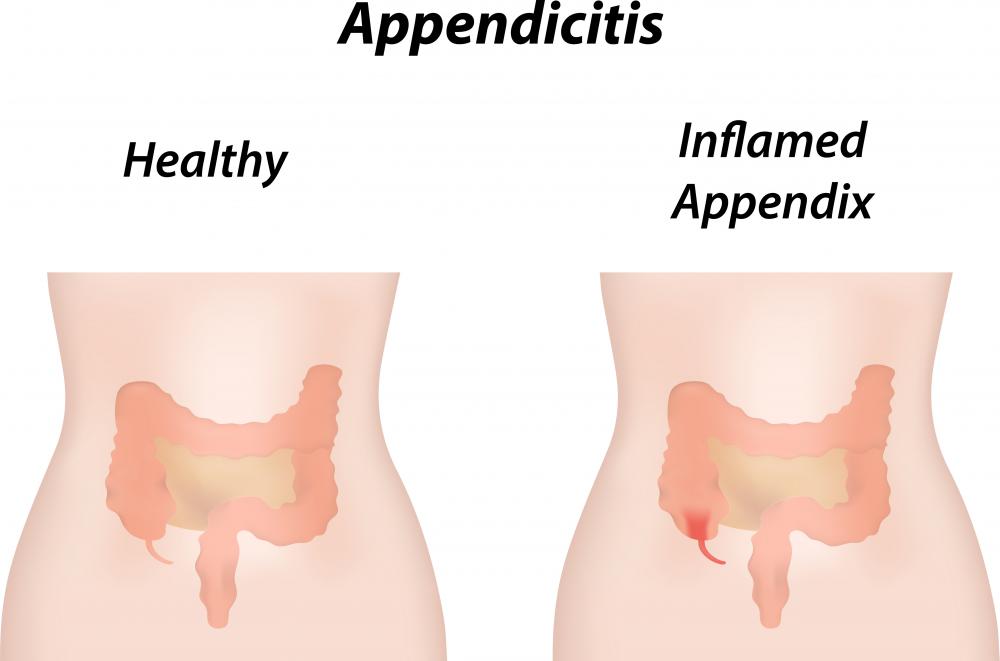At WiseGEEK, we're committed to delivering accurate, trustworthy information. Our expert-authored content is rigorously fact-checked and sourced from credible authorities. Discover how we uphold the highest standards in providing you with reliable knowledge.
What is Pain Sensitivity?
Pain sensitivity is a physiological phenomenon which allows someone to experience a sensation when something potentially harmful to the body is occurring or may occur. When a cut stings, a fire burns, and a slap tingles, sensitivity is involved. Research on pain and the mechanisms involved have shown that people have different degrees of pain sensitivity, and that a number of factors can influence the way in which someone experiences pain.
Historically, many assumptions about sensitivity to pain were rooted in ideas about relative physical or moral strength. Individuals with increased sensitivity were said to be weak, while people who were less sensitive were viewed as strong. Many cultures also believed that men were less sensitive to pain and women more so, in keeping with general social attitudes about gender identity. These beliefs held despite contradictory evidence which suggested that the situation was actually a bit more complicated.

In a 2006 study, a genetic link to pain sensitivity was discovered. Some people appear to secrete more of a chemical involved in the transmission of pain signals than others do because of a natural genetic variation. As a result, when these people are injured, they may feel more extreme pain. Other links with sensitivity to pain include neurological diseases which can heighten or decrease a person's pain threshold, and certain other medical issues as well.

Acute pain sensitivity is important. It protects the body from damage by alerting the brain to the fact that something bad is happening, allowing the brain to take rapid action. Some people have a congenital lack of sensitivity to pain, which is actually a serious problem, as they can hurt themselves quite severely without being aware of it, and internal pain signals are not transmitted either, which means that a diagnosis of a condition like appendicitis may not occur in a timely fashion.

Chronic pain is another issue. In chronic pain, people continue receiving pain signals even though the source of the pain has been removed. For example, many amputees experience lingering pain because the neurons at the amputation site get confused, and their confusion is translated into pain. In chronic pain, the constant pain is not desirable, and medications may be used to manage the experience of the pain so that the patient can enjoy more functionality. Chronic pain can be extremely debilitating for patients, and management programs can become quite complex as patients develop tolerances or bad reactions to medications used for pain management over time.
AS FEATURED ON:
AS FEATURED ON:
















Discussion Comments
One thing about pain experiences is that you tend to forgot how intense the pain was. For example, labor and childbirth is very painful and can go on "forever." But it's funny that most women say that they do forget how bad it was. That was my experience.
If we women remembered how painful it was, we probably wouldn't have any babies after the first one. But when it was time for my second baby to be born, I was ready for the pain and I knew it wouldn't last forever, and that when the pain ended, I would have a beautiful new baby.
@OeKc05 - Your comment about pain sensitivity and red hair was interesting. My daughter has red hair - the closest red-headed relative is four generations from her.
That's so interesting that redheads have certain genetic characteristics, because she does have some of the traits that often seem to go with redheads, like she's quick to anger, and sensitive in other ways. And she is a bit more sensitive to pain than the average person.
I wondered about the male versus female pain sensitivity thing as well. It does seem to make sense that females go through childbirth so therefore they have higher pain thresholds.
So now it is interesting to find that it is a genetic link since of course it is a large genetic difference in our chromosome types that make us male versus female.
The worst pain I have ever felt was tooth sensitivity. Or what I thought was tooth sensitivity. I have had sprained ankles, plantar fascitis, and a stress injury, but the tooth pain takes the cake.
I had this low throb in the bottom of my tooth to my gums for days. And of course I was away at college and it was going to be a week or so before I would be home and I desperately wanted to go to my dentist at home that I had grown comfortable with.
Well when I finally made it home, I found that it was not a sensitive tooth, it was a piece of a filling that had settled in my gum below my tooth.
Ew. Luckily that has not happened since to any of my other many fillings (apparently I had a bit too much sugar when I was a child).
@Perdido - You might want to cut your husband a break. My sister is a redhead, and she told me about several scientific studies in the past few years that found that redheads are more sensitive to pain. I didn’t believe her, so I read the articles about the studies myself.
What scientists found was that a certain genetic mutation that redheads have that determines their complexion and hair color also makes them more sensitive to pain. In particular, the article mentioned pain during dental procedures.
Redheads need more anesthesia and numbing shots before procedures than people with other hair colors. So, your husband is telling the truth.
@cloudel - I’m with you on that! My husband whines like a child when he gets cuts and scrapes, and I just roll my eyes at his tiny injuries.
He also has big issues with going to the dentist. He says it hurts even after he gets the numbing shot, which I find hard to believe. He says the dentist usually has to give him several shots for the numbness to set in, but just one shot numbs my face for hours.
However, he is a redhead, and I have heard some people say that redheads are more sensitive to pain. Does anyone know anything about this?
A lot of people say that men are actually more sensitive to pain than women. When you think about it, women are exposed to pain on a monthly basis.
Menstrual cramps can get very intense, and they last for days. Yet, we deal with it. Also, we bear the pain of childbirth, which is one of the worst kinds of pain.
I know many men who are physically stronger than most women, yet when they get a sore throat or a stomach ache, they turn into the biggest babies! I think being exposed to pain on a regular basis makes women less sensitive to pain, even though our bodies may not be as sturdy or muscular.
I have a friend who has extreme pain sensitivity in his back. He has been having back problems for years now because of an injury he received while on the police force.
He had back surgery a few years ago, and the surgeon implanted a pain pump in his abdomen. The doctor programmed it to administer medication in specific doses at certain times of the day, and it delivers it through a catheter that runs right to the spinal cord. Instead of swallowing a pill and having to wait for it to take effect, he gets immediate relief.
However, the doctor has had to increase his dosage several times. It seems that he is either becoming more sensitive to pain or developing a tolerance to the pain medicine.
Post your comments